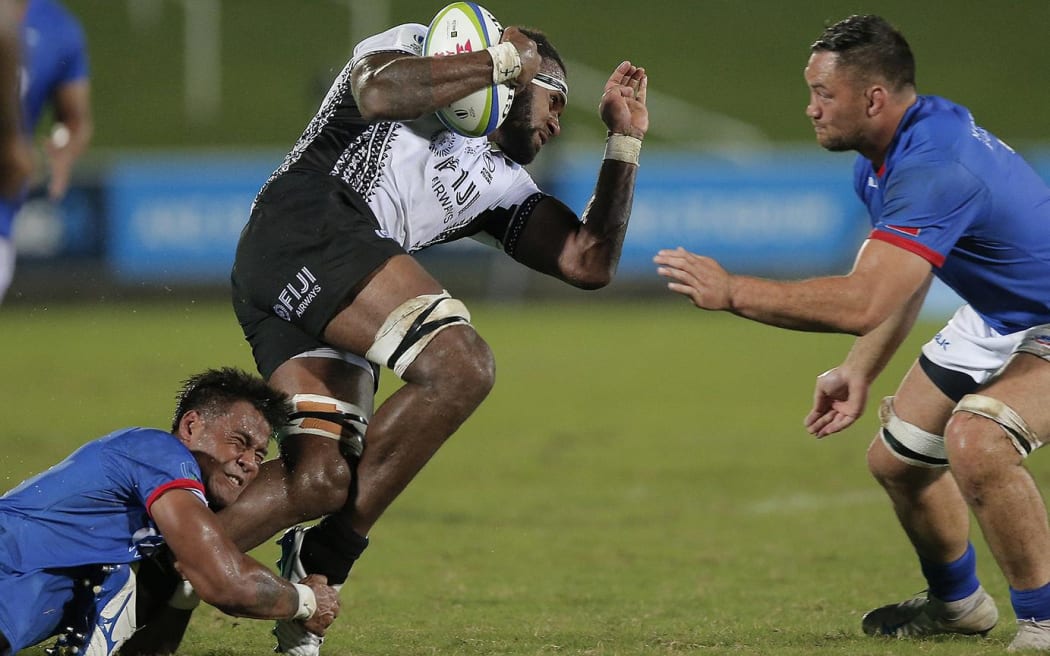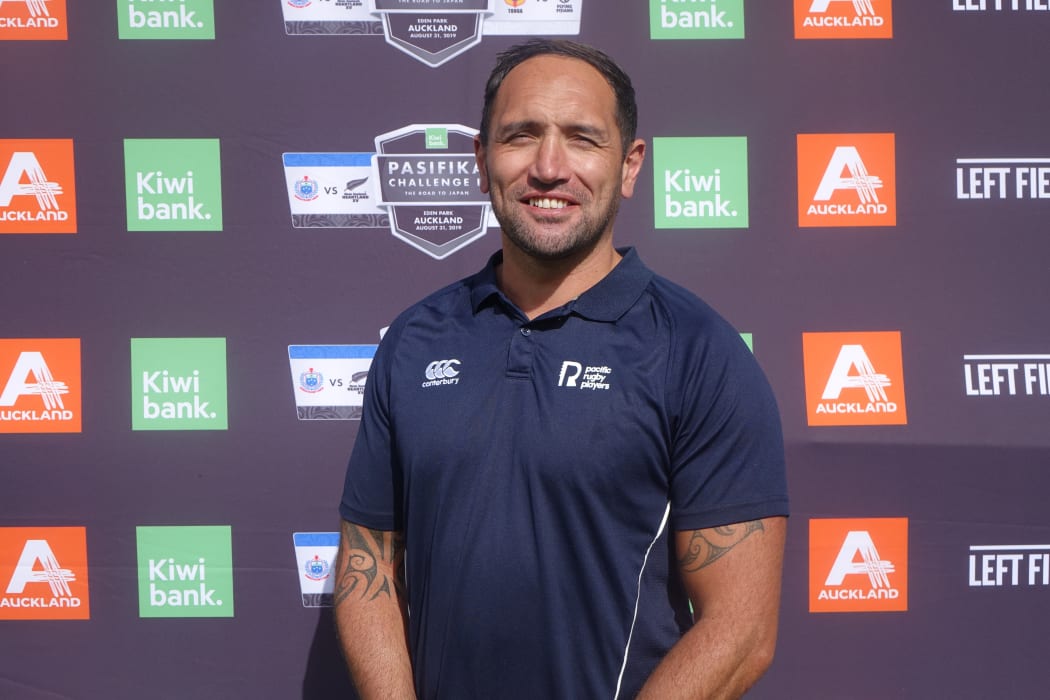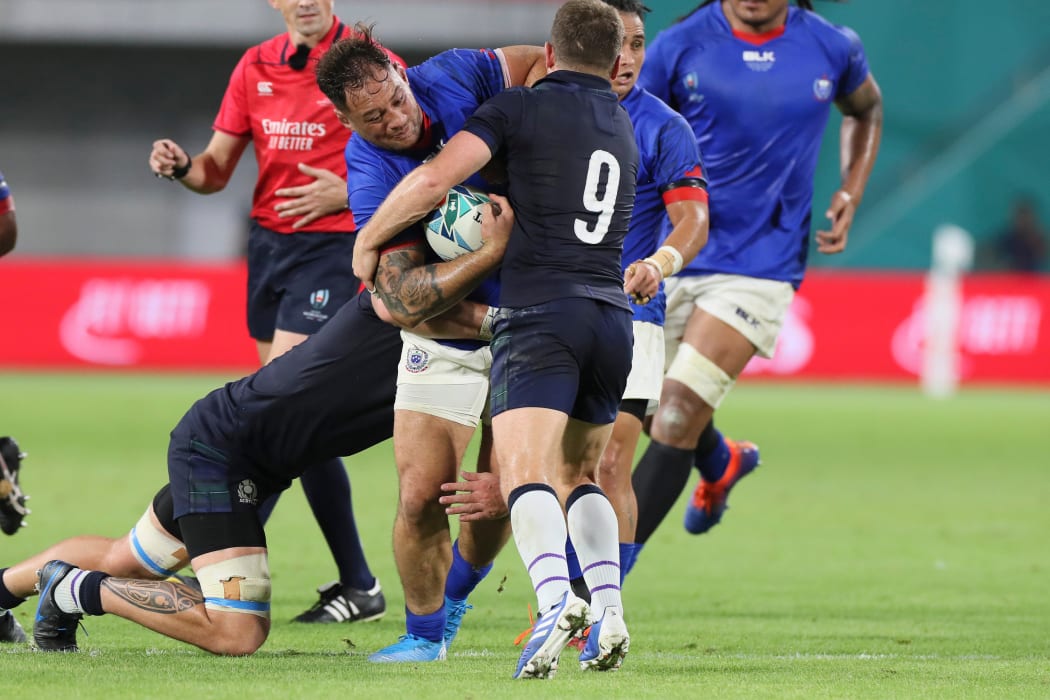The performances of Fiji, Samoa and Tonga at the World Cup shows change is needed in the international game, the Pacific Rugby Players Association says.
All three Pacific nations were eliminated in the group stage, combining for just three wins from 12 matches.

Photo: Zoomfiji
The growing gap between tier one and tier two nations was a major concern, said Pacific Rugby Players' chief executive Aayden Clarke.
"This tournament has shown again if we want the growth of the game across the world, if we want the Pacific Islands to continue to feature, we need to make some changes," he said.
"What's positive at the moment is it feels like the ears are open and people are starting to appreciate what some of the solutions that are being put forward but we really do need north and south - everybody for the good of the game - to put the collective power together to try and make some big changes.
"The gap between tier one and tier twos cannot continue to grow, and we need to try and bring things back together and make sure everybody has an equal opportunity."
Former All Blacks Charles Piutau, George Moala and ex Wallaby Lopeti Timani are among half a dozen players who intend to represent Tonga at next month's Oceania Sevens in Fiji, which would enable them to switch their international allegiance to the kingdom.
Clarke said that loophole was an accidental consequence of Sevens being added to the Olympics and it was time the regulations around player eligibility had a thorough review.
"Our suggestion is that there should be a bespoke regulation put in place that allows players to go in one-way traffic down from tier one down to tier two nations if they have dual eligibility and obviously if they meet certain criteria as well," he said.
"For the good of the game we want tournaments like here in Japan and in France in 2023 to have the very best players in the world competing in the tournament, and a lot of that comes down to tier two and the Pacific Islands."
Clarke said there were a number of players who have previously represented tier one nations but still had a lot to offer Fiji, Samoa and Tonga.
"And it's not just on the field, [but] commercially around building the brand of the island teams. Selling more jerseys, filling more stadiums - we want the Charles Piutau's, we want the Steven Luatua's and so-forth to be able to put on those jerseys so they can have a big, wider community for the game, which needs it in the islands," he said.
"It is something that we're pushing: now is the time, we've got some papers prepared to submit [to World Rugby] and it's all being done with the support of the three unions and us as the Players Association being a key part of that."
Allowing players with dual eligibility to switch from tier one down to tier two nations would help to make the international game more competitive, Clarke said.
"A homecoming amendment has been submitted to World Rugby Exco and the Council before and like we've seen in the past it seems that some of the Northern Unions weren't such huge fans of it but there's a few tweaks that we're trying to make to it currently that by the time it comes back to those levels we're hoping that it might be seen in a different light, and I guess we've just got to keep encouraging and keep educating people about the need to ensure that the game is strong globally, just not in your own backyard."

Pacific Rugby Players CEO Aayden Clarke. Photo: RNZ Pacific/Vinnie Wylie
Pressure to put clubs before country
Samoa captain Jack Lam confirmed during the World Cup he had rejected offers from French clubs in order to represent the Manu in Japan.
The 31-year-old is out of contract after being released by the Bristol Bears in May but said it was a "no-brainer" to turn down the chance of guaranteed employment because the contracts came with the condition that he retired from international rugby.
Samoa and Tonga were both missing a number of front-line players at the World Cup, and Aayden Clarke said Pacific Rugby Players was constantly involved with situations around teams pressuring players to put club before country.
"Players are no different to anybody else and they have to make career and employment decisions, based on opportunities that get put in front of them.
"If the firm down the road offers you a deal that's on certain conditions then obviously you and your family are going to consider it," he said.
"The key here for international rugby to allow it to have its place and to be important and also for the teams like Fiji, Tonga, Samoa to have the best players playing in the jersey, we believe that the sticking point with regulation nine is around the players being able to be remunerated well enough to play international rugby and then take leave without pay from their club situations."
Clarke said anyone who thought regulation nine was working in its current form had their head in the sand.
He said enabling club teams to release their players for test duty without pay could be a big pressure release valve that helped strengthen the international game.
"As you can expect, from their employers perspective we understand sending someone away for 120 days of camp, which would be going into a Rugby World Cup, but still paying them, not getting a return on investment which shapes their recruitment decisions, which shapes their reemployment decisions is not ideal.
"So, our suggestion at the moment is that we need to look at mechanisms about how we can ensure that the players are remunerated well enough for playing international rugby so we can then kick in and make changes to regulation nine and allow clubs to release players on leave without pay," Clarke said.

Captain Jack Lam is wrapped up by the Scottish defence. Photo: PHOTOSPORT

